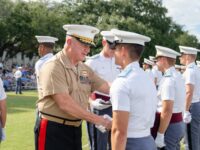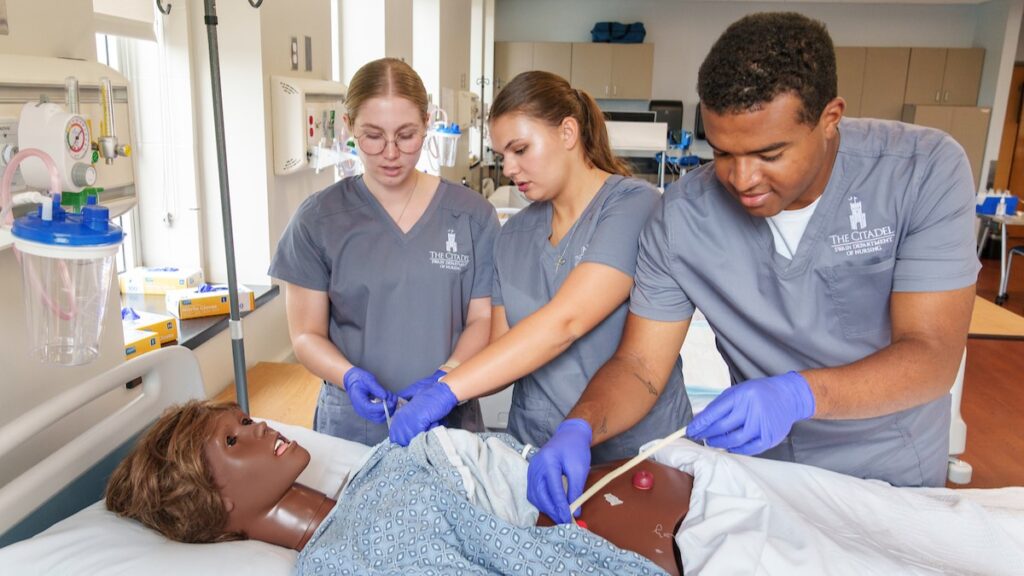
By Andrew Granger, CGC ’26
The Citadel’s Swain Department of Nursing excels in providing tools for its cadets and students to become the next generation of nurses. Students learn essential fundamentals, tools and techniques in the classroom, then apply their knowledge and practice their skills in the Swain Department’s simulation lab.
The simulation lab is set up to imitate a typical hospital environment, with everything from lab equipment to mannequins that mimic patients for students to practice on. The mannequins are technologically advanced to simulate human behaviors and conditions and can be medically treated by students. Some basic, less-realistic mannequins are used for CPR and IVs, while the more advanced, realistic-looking mannequins follow students with their eyes, make heart and stomach sounds, imitate emotions, bleed, receive intubation and even give birth.
According to the nursing department’s clinical lab coordinator Kaitlin Couture, MSN, RN, spending time in the simulation lab is vital for student learning. She guides her students through real-life scenarios in the lab, analyzing their behaviors and actions.
“Skills are practiced and then tested in the simulation space. It really is a good chance for the clinical instructors, as well as myself, to see how a student would perform as a nurse without anyone there,” said Couture.
Nursing students practice their skills in a wide variety of simulations in the lab, from caring for a single patient in a medical-surgical room to dealing with disaster triage situations involving multiple patients.
“It is a full patient scenario that they go in, they see the patient, they have to prioritize care, they have to use critical thinking, they have to perform interventions and assessments, and they have to give medications,” explained Couture.
Couture emphasized the significance of debriefing after their simulation exercises.
“We always debrief about everything afterwards. That’s really where the learning occurs, because we expect them to make mistakes,” said Couture. “We come out and we debrief for usually twice the amount of time as a simulation, and that is where we get into the heart of the simulation. We dissect it piece by piece, we talk about things the students did well, things they could do differently, and then we analyze lab values and the care that they provided.”
Couture is invested in the simulation lab and is always looking for additional ways for her students to learn more effectively. For instance, she is beginning to use humans in her simulations — real-life actors who challenge students’ social skills. Some Citadel faculty and staff, including chaplain 1st Lt. Stephen Rutland, USAFR, along with his wife and daughter, volunteered as actors for the lab.
The Citadel’s simulation lab, led by Couture, is devoted to making a safe place for future nurses to practice and perfect their skills before graduation. Their study and practice across various healthcare environments and situations, both in the classroom and in the lab, build the students’ abilities to provide quality care as professional nurses and nurse leaders.
Andrew Granger of Atlanta, Georgia earned his bachelor’s degree from The Virginia Military Institute in English, Rhetoric and Humanistic Studies. He is currently working as a graduate assistant in the Office of Communications and Marketing while pursuing a master’s degree in Project Management and competing for The Citadel’s Track and Field program.

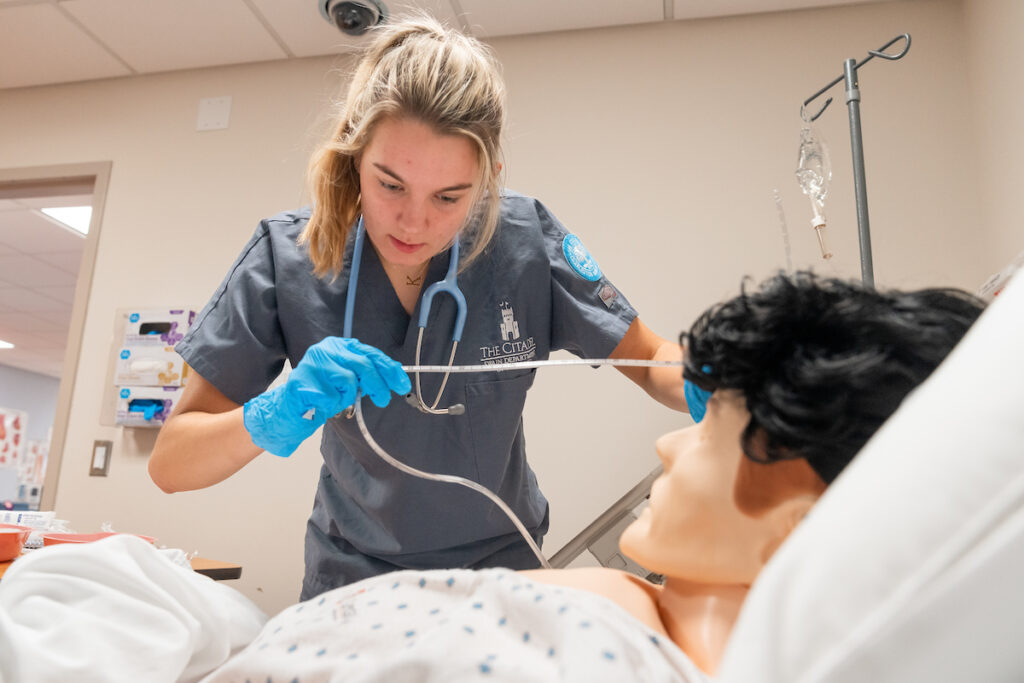
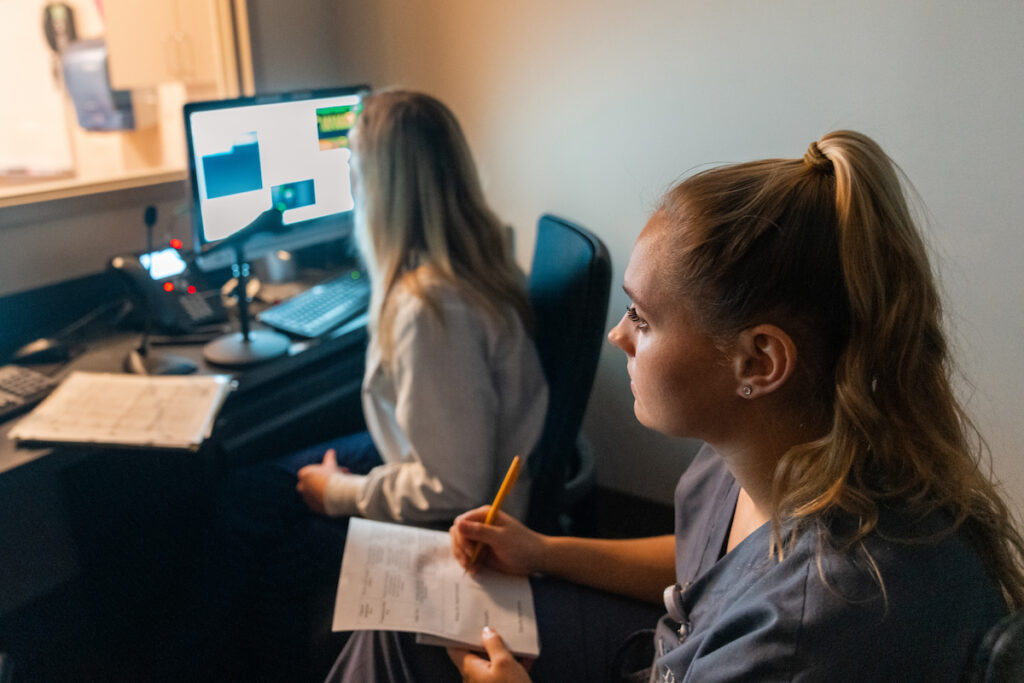
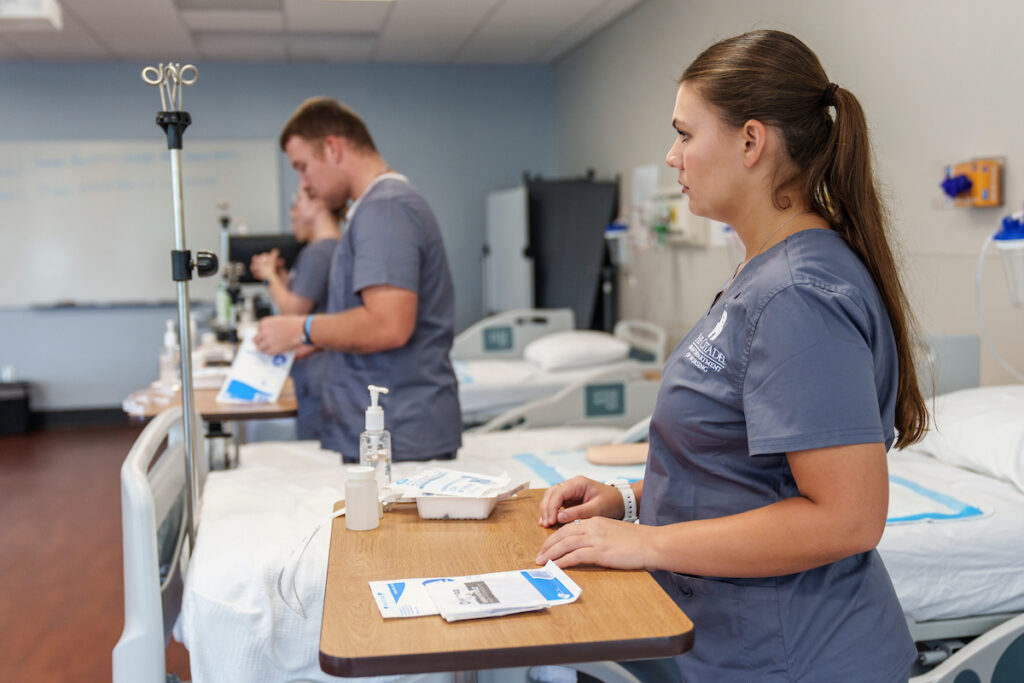
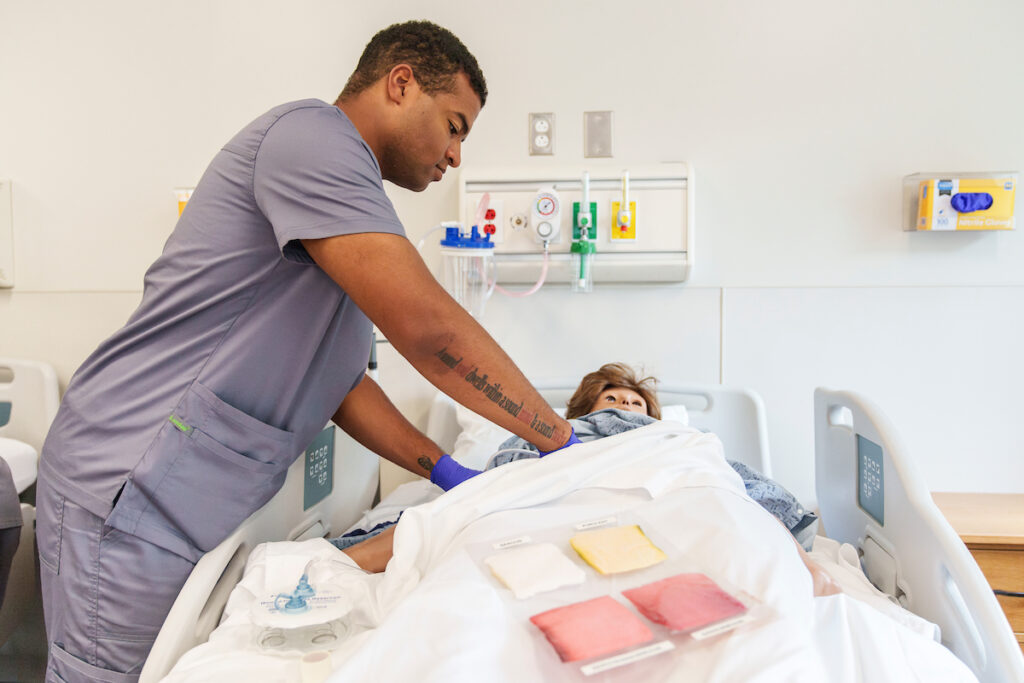
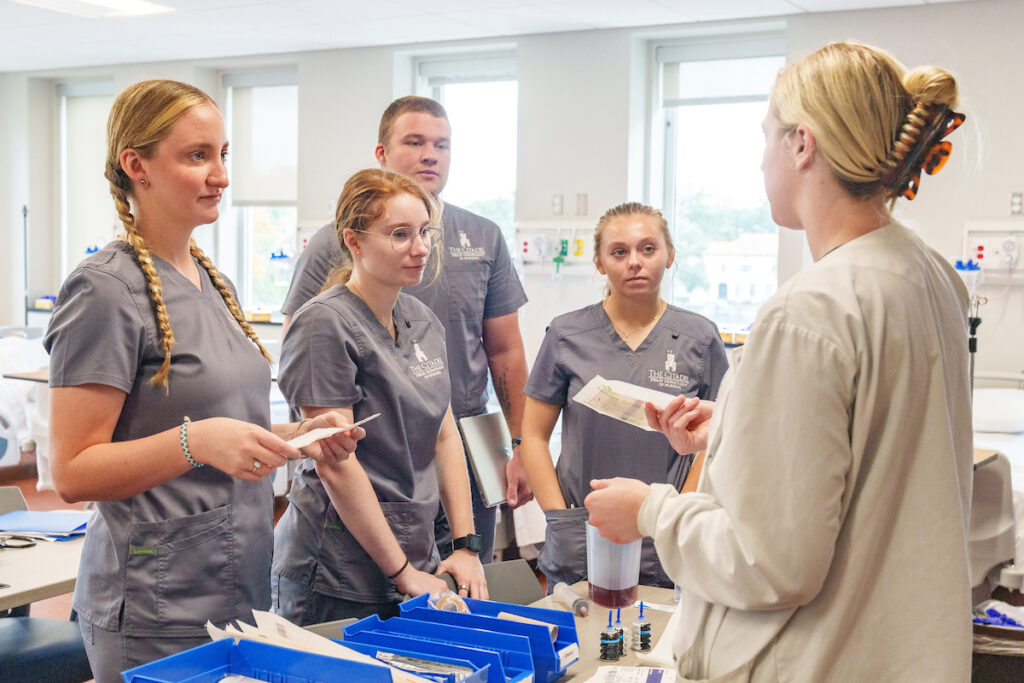
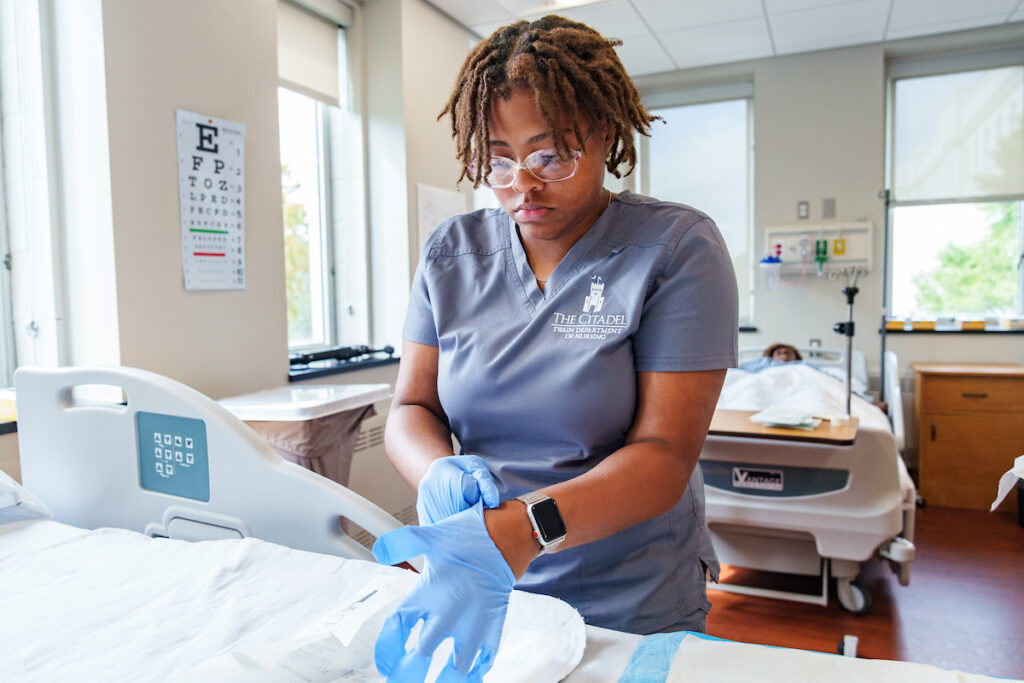
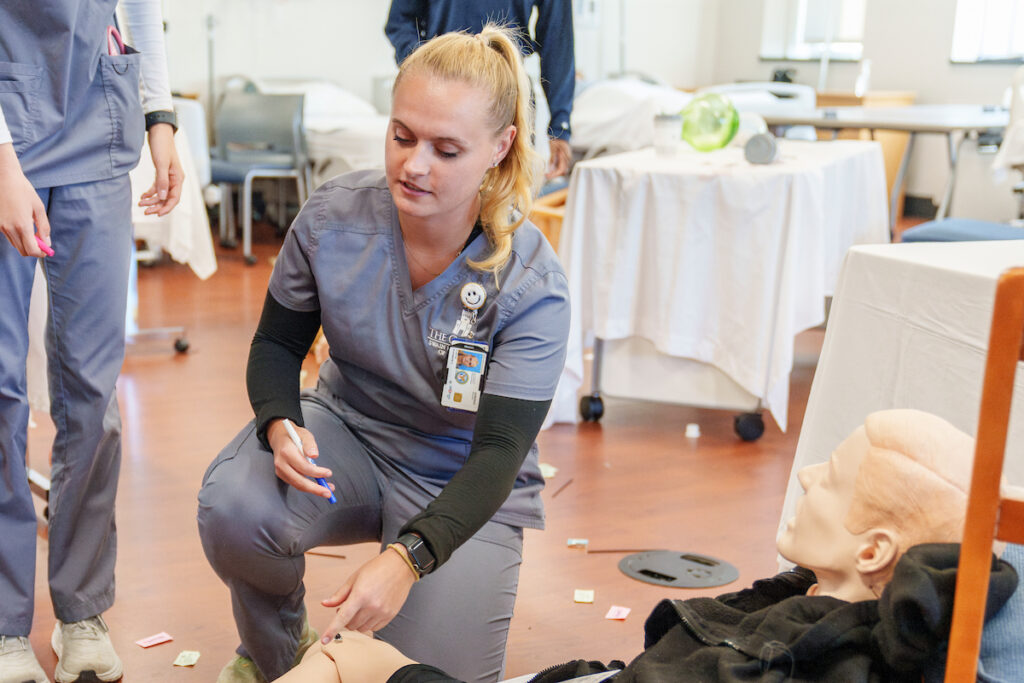
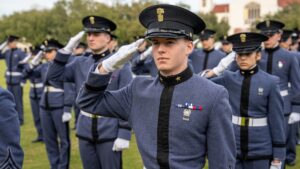 Photos from campus: January in review
Photos from campus: January in review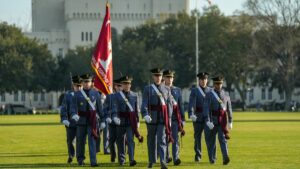 Upcoming News from The Citadel – February 2026
Upcoming News from The Citadel – February 2026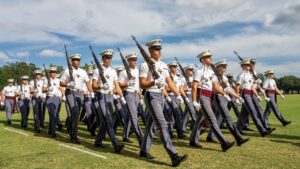 Cadets and students named to The Citadel’s fall 2025 dean’s list
Cadets and students named to The Citadel’s fall 2025 dean’s list

